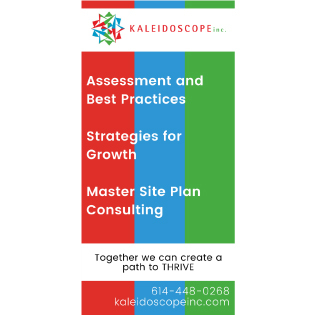Throughout this past fall, reports have been flowing in confirming what many parents, teachers, and camp directors already intuitively knew — the COVID-19 pandemic has had a negative effect on our youths’ mental health (Leeb, Bitsko, Radhakrishnan, Martinez, Njai, & Holland, 2020). During this time, mental health providers have documented increases in both anxiety and depression. All this angst and uncertainty is affecting young people differently than adults. Physical distancing and isolation from friends is impacting their social development and causing psychological trauma through worry, sadness, and fear.
Even before the pandemic, concerning research results revealed dramatically increasing mental health challenges for Gen Zers regardless of race/ethnicity (Centers for Disease Control and Prevention, 2019). Now, looking back at the first six months of the pandemic, mental healthcare providers are reporting increasing stress, anxiety, and depression as a result of several factors: issues stemming from COVID-19, social and racial turmoil, and the political climate. As stress levels grow, medical evidence suggests that adolescents are at risk for a host of problems, even into adulthood, from continued anxiety and depression to poor physical health (Houston, 2020).
Children, youth, and young adults will need immersive and educational camp experiences in summer 2021 more than ever before. Parents, educators, public health officials, and government and camp professionals need to step up this summer and do whatever it takes to provide young people vibrant camp experiences where they can recover from a stunted school year and be part of an emotionally and physically safe in-person peer community. Young people thrive when they experience supportive peer and mentor relationships and have opportunities to contribute and learn while participating in meaningful decision-making. This summer, camp experiences will help young people reset and practice social-emotional learning competencies that will support their academic and mental health readiness when they return to school in the fall.
Research on last summer’s overnight and day camp experiences has significantly improved the knowledge and guidance available to public health officials and camp professionals, and ACA’s revised Field Guide for Camps on Implementation of CDC Guidance provides a robust resource for camp operations. Camps should continue to consistently and diligently implement multilayered virus transmission mitigation strategies, including the incorporation of cohorts, non-pharmaceutical interventions, as well as updated response and contingency plans. So much valuable environmental health information has been gained from the global scientific community and public health and medical experts. With all this knowledge, last summer’s experiences, and evolving new tools (such as affordable testing), camps should be able to operate programs designed to keep their campers and staff as safe and healthy as possible in 2021.
Camp will be on the front line in 2021, providing nurturing care and essential summer learning for children and teens while their parents work. ACA will continue to support all American camps as they navigate toward providing safe and engaging in-person and online camp experiences. Please join us online at the upcoming virtual ACA National Conference February 2–4, 2021, as we innovate and prepare together as a professional community. The mental, emotional, and social health of young people depends upon us.
References
- Centers for Disease Control and Prevention. (2019). Youth risk behavior survey: Data summary & trends report 2009–2019. National Center for HIV/AIDS, Viral Hepatitis, STD and TB Prevention. Retrieved from cdc.gov/healthyyouth/data/yrbs/pdf/YRBSDataSummaryTrendsReport2019-508.pdf
- Houston, F. (2020, October 9). Too young to be stressed: Adolescent mental health in the COVID-19 pandemic. UChicago Medicine. Retrieved from uchicagomedicine.org/forefront/news/too-young-to-be-stressed-out-ingalls-behavioral-health-focuses-on-adolescents-too
- Leeb, R. T., Bitsko, R. H., Radhakrishnan, L., Martinez, P., Njai, R., & Holland, K. M. (2020, November 13). Mental health — Related emergency department visits among children aged <18 years during the COVID-19 pandemic — United States, January 1–October 17, 2020. Centers for Disease Control and Prevention. Retrieved from cdc.gov/mmwr/volumes/69/wr/mm6945a3.htm?s_cid=mm6945a3_w

